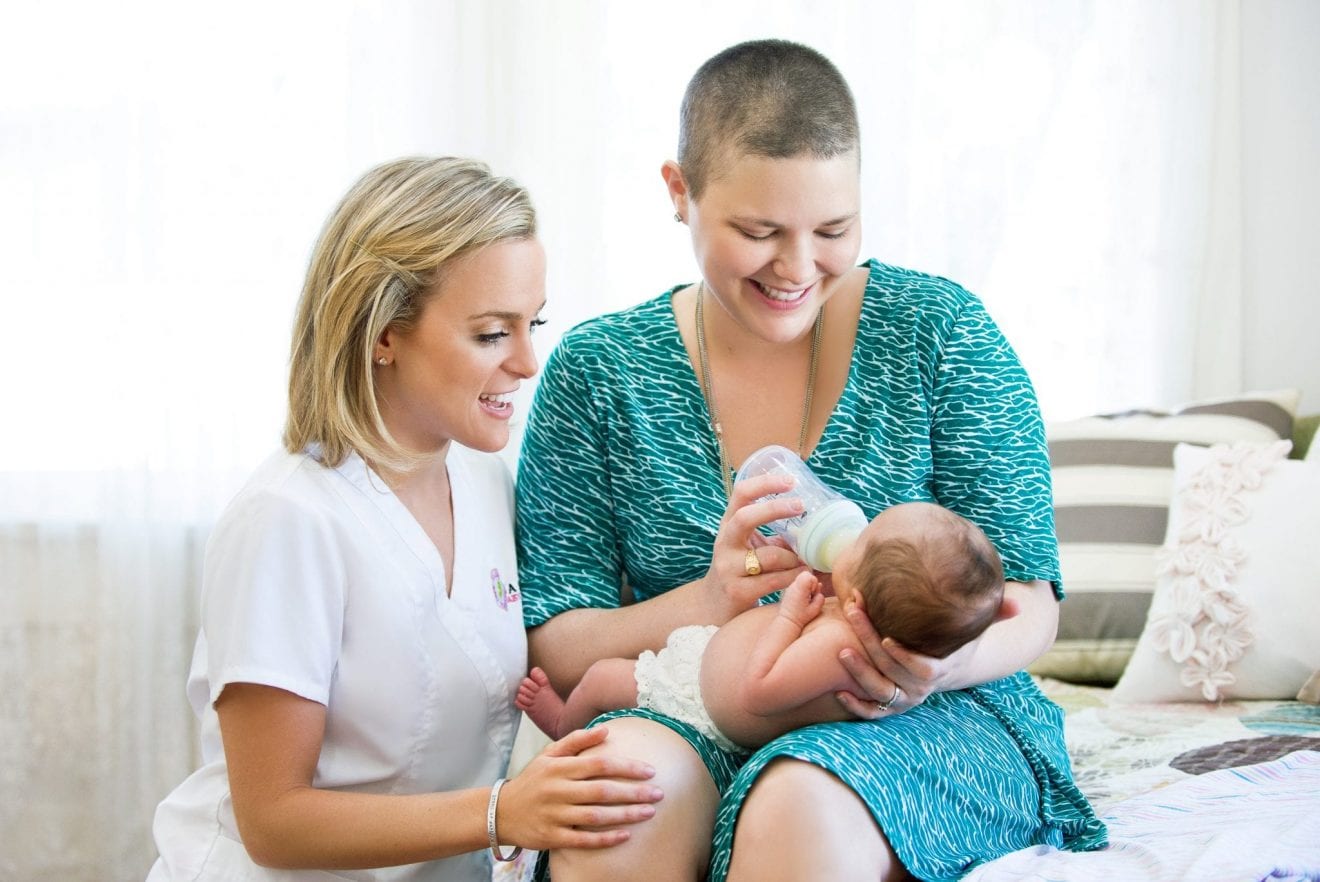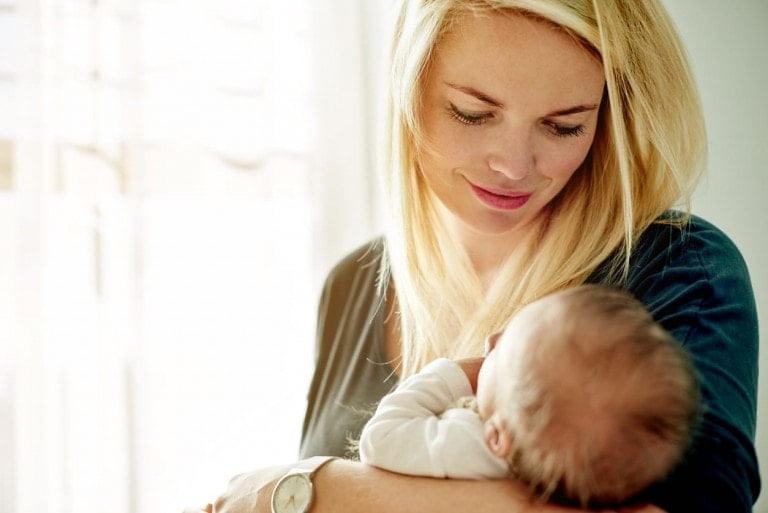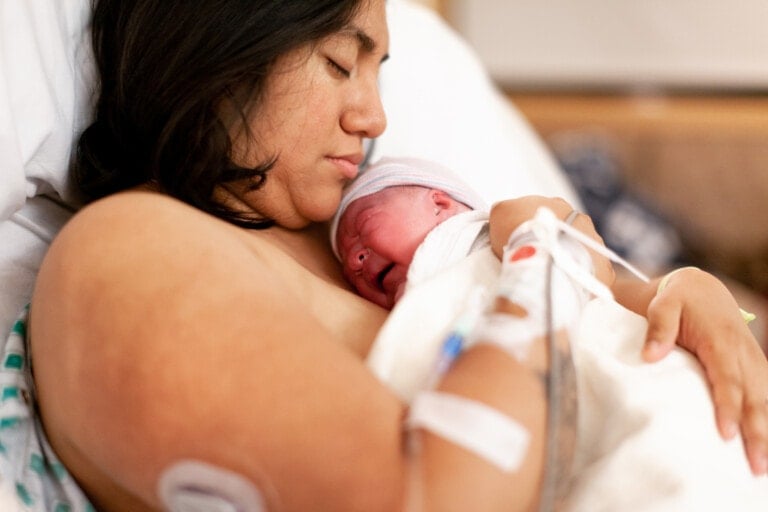When people hear the word “doula” (if they even know what a doula is — most don’t), they immediately think of a birth doula since that is the most well-known type. And sometimes, when women hear the word “postpartum,” they think it’s the type of depression women experience after having a baby. This is why I wanted to clarify things, answer some common questions, and explain why postpartum doula care is something I think every woman needs if they want that support and, honestly, why they deserve this care.
What does “postpartum” mean?
Postpartum is the 12 weeks (3 months) after the birth of your baby when your body is recovering. This time is also referred to as the “fourth trimester.” Just like an antepartum/ prenatal period lasts 40 weeks, there is also a postpartum/ postnatal period lasting 12 weeks.

What is a doula?
The word “doula” — pronounced “doo-la” — is a Greek word meaning “woman servant or caregiver.” 1 More recently, a doula refers to a trained professional who offers emotional, physical, and informational support to a woman and her partner before, during, and after childbirth. A doula believes in “mothering the mother.” She enables a woman and her partner to have the most satisfying experience possible from pregnancy into motherhood.
What is a postpartum doula?
A postpartum doula provides evidence-based information on things like infant feeding, emotional and physical recovery from birth, mother-baby bonding, infant soothing, basic newborn care, and more. A postpartum doula is there to help a new family in those first days and weeks after bringing home a new baby. Research shows that moms, dads, and babies have an easier time transitioning if a good support team is in place.2,3,4
What does a postpartum doula do?
What a postpartum doula does changes daily as the needs of the family change. Postpartum doulas do whatever a mother needs to enjoy and care for her new baby. A large part of their role is education.
Visits usually last 4+ hours and start by debriefing the couple to identify areas that need attention. Every visit usually is centered around a set of priorities. In the early weeks, it’s mostly centered around the mother’s recovery and breastfeeding, while the later weeks include outings and taking care of household responsibilities.
Here are examples of what a postpartum doula does during her visits:
- Providing support for the emotional adjustment to parenthood
- Support and assistance with breastfeeding and/or bottle-feeding, including information about pumping
- Assistance with latch and positioning while breastfeeding while teaching the partner how to support the breastfeeding mother
- Helping you and your partner understand your baby’s cues
- Soothing the baby – helping with a gassy and colicky baby and offering coping techniques
- Demonstration on newborn care, such as diapering, bathing, trimming nails, and swaddling
- Babywearing
- Assisting with the care of older siblings and helping them adjust to the new family member
- Providing support with pet adjustment
- Light housekeeping, such as dishes
- Running errands and grocery shopping
- Small meal preparation for the mother and family members
- Providing resources and referrals within your community
- Nonjudgmental support for the mother’s family
- Organization of the home and nursery
- Baby’s laundry
- Screening for postpartum mood disorders
- Creating a nurturing and quiet environment for the family
- Care for baby when the mother and her partner want to shower, nap, or spend some special time with their other children or with each other
- Hands-on education for infant care and mother care
- Preparing/cleaning pump supplies or bottles
- Offering support in the mother’s physical recovery after childbirth
- Helping the mother process the birth experience

What is the difference between a postpartum doula and a baby nurse or nanny?
The role of a postpartum doula is to help a woman through her postpartum period and nurture the family. Unlike a baby nurse, a doula’s focus is not solely on the baby but on fostering independence for the entire family by prioritizing teaching (baby care, breastfeeding support) and assistance around the home. A baby nurse and a nanny come into the house to care for the child. Baby nurses and nannies do not work as educators or care for the entire family. They are childcare for your baby.
A doula is as available to the partner and older children as to the mother and the baby. Treating the family as a connected and constantly changing unit enables doulas to do their job: nurture the family.
How long does a postpartum doula spend with a family?
Doula support can last anywhere from one or two visits to many weekly visits for over three months.
What hours can you expect a doula to work?
Some doulas work full-time, with 9 a.m. to 5 p.m. shifts. Others work four-hour shifts during the day or after-school shifts until the partner or another family member gets home. Some doulas work evenings from around 6 p.m. until bedtime, 10 p.m., and some work overnight from 10 p.m. to 6 a.m. (usually no less than 8-hour shifts for overnight care). Some doulas work daily, and some only work one or a few shifts weekly. It all depends on the family’s needs.
In every work the beginning is the most important part, especially in dealing with anything young and tender. – Socrates
What is a postpartum doula’s goal?
A postpartum doula’s goal is to nurture the parents into their new roles. As they experience success and their knowledge and self-confidence grow, their need for professional support should diminish.
How does a doula nurture parents into their roles?
Self-confidence tremendously impacts a person’s ability to approach any task, and parenting is no different. Trained and certified doulas are always taught to consider parents’ feelings and build confidence whenever possible. Doulas accomplish this through praise, acceptance, and a nonjudgmental approach. In addition, the doula will teach parents strategies and skills that will improve their ability to bond with their babies. A calm baby growing well will help parents feel more confident in their abilities.

Do doulas help mothers deal with postpartum depression?
Unlike therapists or psychiatrists, doulas do not treat postpartum depression. However, they will help by creating a safe place for the mother emotionally. The doula will provide a cushioning effect by accepting the mother within each stage she passes through. They relieve some of the pressure on the new mother by helping her move into her new responsibilities gradually.
By mothering the mother, doulas ensure that the mother feels nurtured and cared for and that she is eating well and getting enough sleep. (Having a postpartum doula helps reduce the chances of women experiencing postpartum depression.) Also, trained and certified postpartum doulas help clients prepare for parenthood, maximizing support and rest. These doulas will help their clients screen for PPD and make referrals to appropriate clinicians or support groups as needed.
Do doulas teach a particular parenting approach?
No. Doulas are educated to support a mother’s parenting approach. She will give you the different options you can choose from as a parent but allow you to choose the best method for you and your baby without judgment. Doulas are good listeners and encourage mothers to develop their own philosophies.
How do postpartum doulas work with a mother’s husband/partner?
A doula respects the partner’s role and input and teaches concrete skills that will help the partner nurture the baby and mother. The doula will share evidence-based information with the partner that shows how their role in the early weeks will dramatically positively affect the family.

How can I find a postpartum doula in my area?
You can use DONA International’s online doula locator (here) or DoulaMatch’s website (here).
For more, listen to our podcast episode where two doulas talk about a postpartum doula’s role.






























